The implications of child abuse on the educational achievement of students with learning disabilities
₦10,000.00 ₦3,000.00
PROJECT NAME: the Implications of child abuse on the educational achievement of students with learning disability
PAGES: 73
Feel free to WhatsApp me on +2348039692804 if your topic is different from this or you need an additional assistance
Description
CHAPTER ONE
INTRODUTION
1.1 Background to the Study
Excellent educational achievement of students in general is essential. This is the main reason why parents are sending their children to school by paying huge amount of money. Also, this is the central goal of every school. A school where a child cannot be given an excellent educational achievement will of no doubt has a low turnout in students enrolment. However, poor academic performance cannot be abated. This is because the intelligent quotient of every child is not the same. Also, there are other factors ranging from physical condition of the learners, environmental adaptation, available resources, government policy on education, child abuse among others that can result to poor academic performance of the learners.
Without doubt, the state of poor educational achievement in the world does not exempt persons with disabilities. In fact, it is not a gainsaying that persons with disabilities are the one suffering from the poor academic performance most. World Health Organization (WHO, 2020) estimates that approximately 600 million people in the world experience impairment of various kinds including students with learning disability.
Learning disabilities are neurological dysfunction and they are correlated with basic psychological process. Today, it is perceived that learning disabilities is as a result of minimum brain dysfunction in the central nervous system owing to neurological developmental lag resulting in clumsiness, restlessness and inattention. Learning is a process by which neurons joined by developing the synapses between them so, a relative influence of brain damage account for ineffective cognitive process which manifest during learning (Bethel-Eke & Eremie, 2020). With reference to brain damage, and neurological developmental lag, it can be deduced that they are casually correlated with basic psychological process. A child who suffered from ineffective cognitive process cannot perform well academically. These problems can obstruct a one in learning basic skills such as reading, writing and/or math. Also, Steele (2020) opined that they can interfere with higher level skills such as organization, time planning, abstract reasoning, long or short term memory and attention. It is pertinent to realize that learning disabilities can affect an individual’s life beyond academics and can impact relationships with family, friends and in the workplace.
National Institute of Health Neurological and Stroke (2023) states that learning disabilities occur in very young children, yet they are usually not noticed until the child reaches school age. Learning disabilities can be lifelong conditions. In some people, several overlapping learning disabilities may occur. Other people may have a single, isolated learning problem that has little impact on their lives. The most common treatment for learning disabilities is special education. Specially trained teachers may perform a formal assessment to understand the child’s academic and intellectual potential. They will also look at the level of academic performance. Once the evaluation is complete, the basic approach is to teach learning skills by building on the child’s abilities and strengths while correcting disabilities and weaknesses. Other professionals such as speech and language therapists also may help. Some medications may help the child learn by enhancing attention and concentration. Psychological therapies may also be used.
Poor academic performance is a serious problem that requires the attention of all stakeholders in education from Ministry of education to the student themselves. Since learning disabilities have been observed to be difficulties that could undermine students` ability to perform well academically. The researcher is therefore interested in finding dependable solution to the problem of student poor academic performance. This study is concerned at determining if learning disabilities could be associated with poor academic performance among students. Areas of learning disabilities considered for the study include; hyper distractibility, eye-hand coordination, spatial awareness disorder, figure-ground relationship, dyslexia disorder, hypo-activity and impulsivity.
Education is a fundamental human right and is considered as pivotal to the development of the self and the nation at large. The United Nations views education as a basic human right and an instrument for achieving social equality and higher economic development (UNICEF, 2021). However, in spite of the important role of education, the researchers observe that many children are not participating to full capacity in the education offered by the school system due to various challenges ranging from child labour, children heading families, povertyand child abuse (UNICEF, 2021).
Child abuse is outlined as a non-accidental behaviour by oldsters, caregivers, or the other adults that’s outside the norms of conduct and may cause physical or emotional damage to a child. Types of neglect include physical neglect: characterized by the care giver’s failure to supply basic physical requirements, like safe, clean and adequate covering, housing, food and health care; emotional or psychological neglect: characterized by an absence of caregiver heat, nurturance, encouragement and support, academic neglect: characterized by a care giver’s failure to supply applicable academic opportunities for the child; and, environmental neglect: characterized by the care giver’s failure to make sure environmental safety, opportunities and resources (Venumadhava, Balaraddy and Anil; 2022).
Child abuse is one of the most challenging social catastrophes attracting public attention in the world (Alokan & Olatunji, 2020). Child abuse is any act of omission by parents, guardians or any caregivers that results in non-accidental physical or mental injury, or sexual abuse. In addition, the cruel behaviour on children by teachers, parents, peers, guardians, siblings and the society in general constitute child abuse. The simple truth is that there is no safe place for children anymore because child abuse is rampant everywhere (Augustine and Abubaker; 2021).
Broadly defined, child abuse is when a parent, a primary caregiver, or any other person who has responsibility for the child through an action (e.g., beating, stabbing) causes injury, death, emotional harm, or risk of serious harm to a child. Child abuse can take many forms including physical abuse, sexual abuse, exploitation, and emotional abuse (Altafim & Linhares, 2023). Existing research indicates that emotional abuse is the most common form of abuse (Foster, Olson-Dorff, Reiland, & Budzak-Garza, 2023) with physical abuse being the most reported (Tillman, 2020) and sexual abuse being the least reported (Foster et al., 2023).
Every aspect of the child needs to be accepted, valued, and cherished by the child’s major caregiver or a parent. The desecration of or malfunction to value any of these fundamentals of the child’s psychosocial being comprises categories of child abuse and neglect. According Irfan (2022), any person who is under the age of 18 years is a child. This is a generally acknowledged explanation of a child and it comes from an international legal organization which is accepted by most countries around the world.
Academic achievement generally refers to how well students accomplish his or her tasks or studies. There are quite a number of factors that may influence the level and quality of students’ academic achievement of which child abuse is notable. According to Nweze and Owo (2022), Child abuse has emerged as one of the serious social problems that need the attention of everyone due to the devastating influence it has on the academic achievement of children. Nweze and Owo, (2022) in their study reported the woeful academic achievement of students in various internal and external examinations has a result of child abuse.
Generally, failure has many disadvantages in various fields, since learning and teaching are the very important and considered a necessity for life at the present time. The problem of low achievement at examinations is a big problem causing a lot of negative and dangerous effects on the family and the community together. As for the family that facing this problem, its individuals are suffering from instability and the emergence of cases of violence and escaping from the house and other things that sometimes destroy the family which will reflect negatively on the community as a whole. Accordingly, this can lead to imbalance and inharmonic relationship among the community members. Because of the distraction of the social structure where it causes the irregularity in the tasks performed by its members, the emergence of social classes, and a failed and unsuccessful class in its life considered as a burden on community that lead to wide gaps among the members of the community (Nweze & Owo, 2022).
Unfortunately, these coercive methods cannot lead to improved conditions of their children, on the contrary, they can provide undesirable consequences.
Child abuse has become an endless and cruel cycle that hurts the image of Nigeria and the self-respect of those involved (Peter & Anake 2023). Child abuse can take place in a child’s home or schools or communities the child interrelates with (Peter & Anake 2023). There are three major categories of child abuse: physical abuse, psychological or emotional abuse and verbal abuse. Child abuse as any act as sequence of acts of charge by a parent or other caregiver that results in hurt, possible of harm, or danger of harm to a child (Leeb, Paulozzi, Melanson, Simon & Anas, 2020). Leeb, Paulozzi, Melanson, Simon & Anas, (2020) defines child abuse is any recent act by concierge which results in death, grave physical or emotional harm, sexual abuse or use, an act or breakdown to act which presents an about to happen risk of serious harm. Child abuse is the act of transfer a task to a responsibility to a child more than what he or she could accomplish over time. It is a process of forcing a child to carry out duties against his or her wish.
Child abuse is therefore a practice whereby children are ill-treated, tattered or disadvantaged of some essential needs in the home, street, religious houses or at school by the elderly (Denga & Denga 2021). Harmful behaviours of children’s teachers, parents, peers, guardians, siblings, mentors and the society in various forms could also lead to child abuse. Child abuse is therefore not a strange phenomenon in Nigeria. There is no safe place for children anymore because it is everywhere. According to Nwogwugw, Ozoh, Nwokoye and Ezenekwe, (2021) most children workers are in domestic service and hawking. They rate high in the incidence of child labour because of the concentration of the population of people under poverty line. A lot of children are seen hawking sachet water, oranges, prop-corn, prostitution, and working in restaurants, performing such chores like baby-sitting, fetching water, sweeping, splitting firewood and cooking as labourers. During school hours children who are supposed to be in school are found in market places, streets or even at homes, doing one form of menial job or the other. Although the impact of child abuse is large but evidence of causal effects of maltreatment on children’s longer term outcomes in school is generally lacking. The current State of evidence for a link between child abuse and academic achievement is limited to negative associations between maltreatment and school achievement. On children with learning disabilities who are abused receive lower ratings of achievement from their school teachers; score lower on cognitive assessments and standardized tests of academic achievement, obtain lower grades and get suspended from school. Hence, this study is set to investigate the implications of child abuse on the educational achievement of students with learning disability in Afijio Local Government area of Oyo State.
1.2 Statement of the Problem
Today, teachers, parents, education authorities and government agencies have over the years shown concern over observed increasing rate of poor educational achievement among secondary school students in Nigeria. Also, beneficiaries of education in various institutions are no longer perform up to expectation. Child abuse is among the factors that are affecting the academic achievement of students with learning disability. When a child is abuse, the emotional trauma will remain in his or her brain forever. As a result, this will affect his or her academic concentration and that may result to poor performance in his or her academic pursuit. To ascertain this assumption, the researchers are bothered with the topic Implications of child abuse on the educational achievement of students with learning disability (A case study of some selected secondary schools in Afijio Local Government area of Oyo State).
1.3 Purpose of the Study
Generally, the study intends to look into the Implications of child abuse on the educational achievement of students with learning disability (A case study of Afijio Local Government area of Oyo State). Specifically, the study seeks to:
- examine causes of child abuse
- examine the implication of child abuse on the educational achievement of learners with learning disabilities
- assess ways of assisting learners with learning disabilities who are abused
1.4 Research Questions
- What are the causes of child abuse among learners with learning disabilities in Afijio Local Government Area of Oyo State?
- What are the implications of child abuse on the educational achievement of learners with learning disabilities in Afijio Local Government Area of Oyo State?
- In what way can learners with learning disabilities who are abused can be assisted to attain educational achievement?
1.5 Significance of the Study
This study will be of help to many people in the society as it will be of benefit to educational planners and educational managements. The study is also of significant to special educationists taking care of the educational curriculum of special students in Nigeria.
In addendum, the study will be of immense benefits to teachers teaching students with learning disability in secondary schools. Without doubt, this study will really be of great benefit to Ministry of Education, Research and Development Council and government in particular by aiding them in designing an appropriate educational policy addressing implications of child abuse on the educational achievement of students with learning disability.
The study will also be of great benefit to students with learning disabilities and their parents as the study will reflect the strategies which will be helpful in educational achievement
1.6 Scope of the Study
The scope of this study is limited to some selected secondary schools in Afijio Local Government Area in Oyo State. Four schools will be sampled in the local government. The name of the schools are:
- Akinmorin Grammar School, Akinmorin
- Sped International Secondary School
- Community Secondary School, Jobele
- Baptist Secondary School, Ilora
1.7 Operational Definition of Terms
Implications: In reference to this study, it refers to consequences of child abuse on the academic sojourn of learners with learning disabilities
Child abuse: In this study, it refers to a state in which a child is subjected to pain from grave physical injury imposes upon him/her by a person in a way other than unintentional.
Educational achievement: It refers to the success in the academic pursuit of students with learning disabilities
Learning Disability: This is the disability that has to do with the cognition of students in learning.
Learners with Learning Disability: It refers to learners who have difficulty in acquiring basic skills or academic content due to difficulty using or understanding spoken or written language.

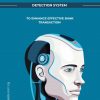
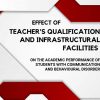
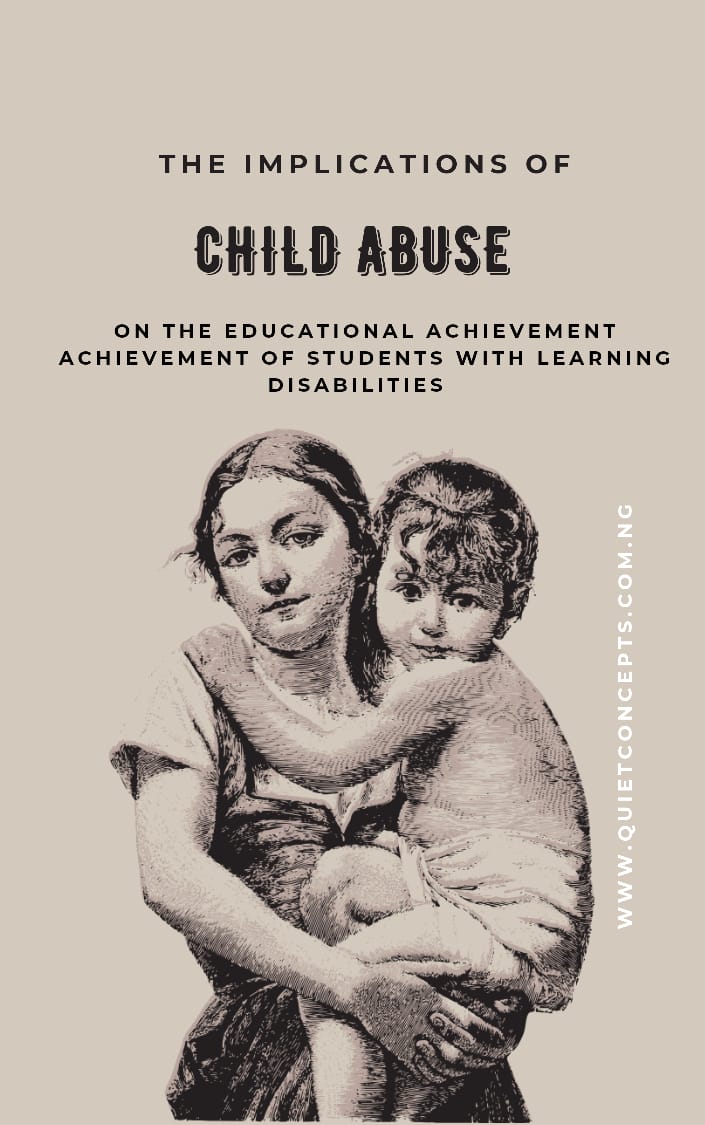
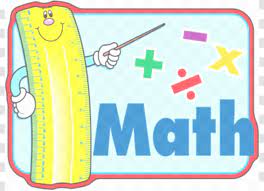
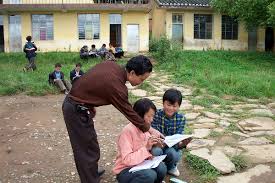

Reviews
There are no reviews yet.